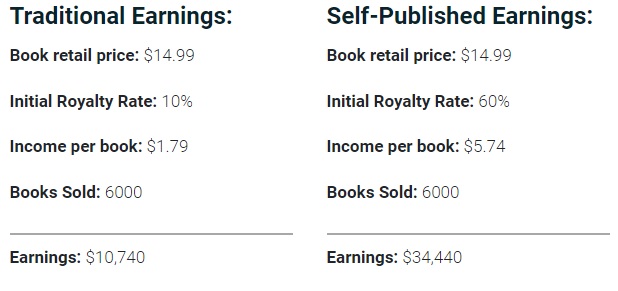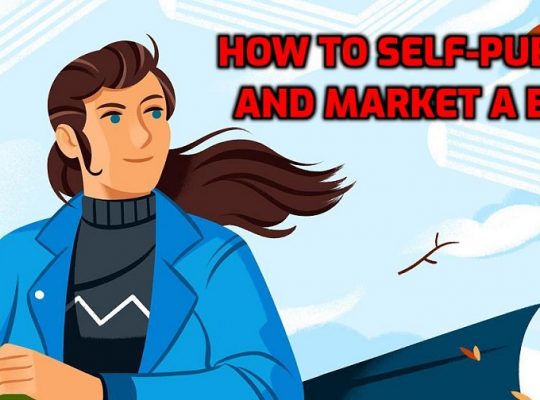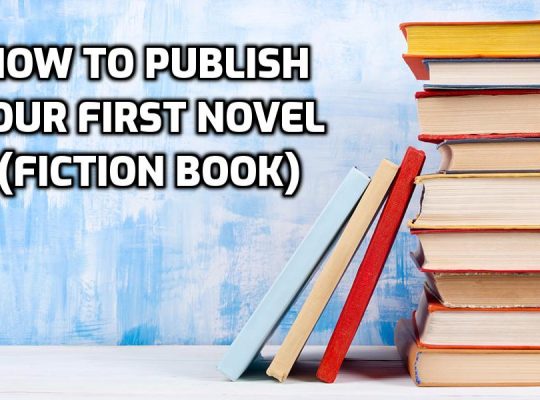Complete Pros and Cons List for All Publishing Types includes a comparison of Traditional publishing vs. Self-publishing vs. Hybrid publishing. The difference between this article with other websites is we are not trying to sell a product of ours and this is just the facts gathered from all over the internet from different sources with people having different viewpoints and experiences. This will help you to choose more wisely.

First, ask yourself if you would prefer to be traditionally published or self-published. Both routes are viable and respectable, but they are very different.
There is only ONE key difference:
If the author owns the rights and royalties, then the book is self-published.
If the publishing company owns the rights and royalties, then the book is traditionally published.
Traditional Publishing Advantages and Disadvantages
Traditional publishing involves finding an agent through the process of querying. Authors submit documents like synopses, query letters, and first chapters in hopes that the agents they submit to are interested enough in their manuscripts to represent them. Once accepted, the agent finds a suitable publishing house for the author, and all parties coordinate to publish the book from there.
Is traditional publishing dying?
No, traditional publishing isn’t dying. And the 825.7 million print books sold by US publishers in 2021 are solid proof. That was an 8.9% increase compared to 2020.
Part of the reason for such a book publishing success was the pandemic — more free time and the desire to escape from anxiety led to more reading. And the numbers support it: Adult fiction sales grew by 25% compared to 2021, while adult nonfiction increased by 4.4%.
As you see, traditional publishing isn’t dying; far from it. But, the industry is likely to change, embracing a hybrid publishing approach more and ‘hunting’ for self-publishing stars.
So, if you’re goal is to get that sweet trad publishing deal, don’t get discouraged — the market is hot, and the opportunities are ripe.
Who should Publish with a Publisher?
If you can get an offer, and an advance of $500k or more from the publisher, you should (almost certainly) take the deal. Please take into consideration that this is a general answer. But basically, you must have an audience of at least 25k+ people waiting to buy your book specifically
These are mainly the types of people who can get those deals:
- Big Celebrities
- Famous Athletes
- A-List Actors
- Politicians
- Household name CEOs
- Professional Writers (novelists, etc.) with a long history of high sales
- People with deep connections in the publishing industry
Pros
- Monetary advance prior to publishing (typically under $10,000 for first-time authors. Your advance often has to be “paid back” with book sales the equate it before you earn new income)
- Publisher invests the money to publish the book (and they usually can ensure professionalism, so no upfront cost for you)
- The highest potential for traditional media coverage
- The highest chance of print distribution in bookstores
- Sends signal of validation (while no book reader cares who the publisher is, journalists who work for major media companies still look at the publisher as a signal of credibility.)
- Access to prestigious awards
- Industry Knowledge: They know what works from design to every detail
- Focus on writing alone: You want to write a book a year
- Limited editing and copyediting assistance by the Publisher
Cons
- Publishing companies own the rights and royalty (the author will receive 10-15% typically)
- Finding Agent with a complicated Querying Process
- The agent takes around 15%, Takes between 1-3 years to publish after an agent says “yes” to representing you
- Nearly impossible to get a deal (less than 1 percent of proposals are accepted)
- Huge time investment (the traditional publishing process is overly complex)
- Very slow to market (2+ years)
- No marketing control
- No creative control and disagreements
- Won’t do niche books
- You may still be in charge of marketing and they will expect that because of how the market works nowadays because of the internet, social media, and the lower power of bookstores.
Traditional Publishing Royalty Rate
First-time traditionally published authors usually make 10% per book sold until their advance is paid out, and then their earnings can go up to 12.5%. So for a book that retails at $17.99, a traditionally published author would bring $1.79 per book home.
15 percent hardcover, 7.5 percent trade paperback, and 5 percent mass market.
Self Publishing Advantages and Disadvantages
Self-publishing involves much more direct author participation. The author will generally handle editing, marketing, printing, and distributing the book, often with assistance from third parties. There is no need to query agents, but an author should still be prepared to explain their book from a sales standpoint. In self-publishing, the author is the book’s best advocate.
The state of self-publishing in 2022
Amazon KDP is the biggest corporate player in the self-published literature market. If you want to know how the industry’s doing, check how KDP is doing.
The most straightforward way to evaluate the state of KDP is to take a look at Kindle Direct Publishing global fund. KDP global fund is a budget from which Kindle Unlimited authors get paid.
KDP global fund grew by $6 million in the past year alone and was multiplied by 16 in the past 8 years. (If you ever wondered if self-publishing on Amazon is worth it, the answer is yes.)
Of course, the number of indie authors grew exponentially as well. But, KDP global fund stats show that the demand for self-published books continues growing.
Though, your trip through the Internet jungle may have painted another picture of the self-publishing industry.
“The market is oversaturated; self-publishing is not a viable career choice; it’s a complete lottery,” are some of the sentiments that surround the self-publishing industry.
However, the negativity bias and the Internet’s tendency toward controversy and “hot topics” distort reality. Besides, the negative voices are always the loudest ones, while happy authors aren’t likely to vent online.
Who Should Self-Publish?
Just about everyone else:
- Business owners
- Consultants
- Entrepreneurs
- Business people
- C-level executives
- Financial planners
- Lawyers
- Doctors
- Coaches
- First-time Authors
- Anyone else who just wants to write their book
Pros
- Self-published authors have full ownership of rights and royalties
- You have complete control over your book (Creatively and everything else)
- It is significantly more profitable (unless you are a household name like James Patterson or Nora Roberts, most authors earn mere pennies for each book sold)
- Fast to market (6 months)
- Complete control of marketing
- Complete freedom, no gatekeepers telling you what you can and cannot do
- Can do niche books (which are a huge advantage for most authors
- Longer Shelf Life: You will be replaced by the publisher when the next writer comes up but with self-publishing, everything depends on you
- You can update or republish at any time
Cons
- You must make sure the book is good in all aspects. If it’s unprofessional in any way (writing, proofreading, editing, cover, marketing, etc.), it will make you look bad.
- It’s time-consuming to learn and manage the process yourself.
- If you hire excellent professionals to help you, it’s expensive.
- You have to do all of the marketing yourself (unless you pay for it) so it means less time for you if you want to focus on just writing (like a professional novelist)
- Lack of Support: This can affect you not only moneywise but also emotionally
- Lack of Recognition: self-published authors may also receive the cold shoulder from media refusing interviews, literary agents offering marketing help, and contest developers offering prize money.
- Lack of a Guarantee for your money and time
- Storage area if you want to publish it first and not on demand
- Difficulty in distribution
Self-Publishing Royalty Rate
Amazon’s paperback book copy royalty rate is 60% of your book’s retail price minus the book’s print cost. So for a 300-page book that retails at $17.99, a self-published author would take home $7.54 per paperback book sold.
Hybrid Publishing Advantages and Disadvantages
Pros
- Easier to get a book publishing deal because the publisher doesn’t risk as much
- Support of a quality book-producing infrastructure: editors, designers, marketers
- Book rights stay with the author
- Higher royalties than in traditional publishing
FAQ about Publishing
Do you make more money self-publishing or traditionally publishing?
On average, you make more money per book sale in self-publishing. For example, an indie author can expect to earn up to 60% royalties on Amazon KDP. Usual traditional publishing royalties are 5% for mass-market paperback sales, 25% for eBook sales, and 15% for hardback sales. Though royalties differ depending on how many book copies were sold.
Though, if you’re a bestselling author, you can get a really good deal from a traditional publisher that will compensate you incredibly well.
Why it’s better to self-publish?
It’s better to self-publish than traditionally publish because an author maintains all the rights to the book, has complete creative freedom over book editing, marketing, layout, and book cover design, and earns more off of book sales.
Why you shouldn’t self-publish?
You shouldn’t self-publish if you don’t have the resources to invest in book cover design, editing, and book layout. Without such preparation, your book wouldn’t be competitive, and your authur brand will suffer as a result. You want your first published book to be high-quality so readers don’t dismiss you.
How much can you make from self-publishing vs traditional publishing?
The amount you make from self-publishing depends on your royalty rate, how much you sell the book for, and how much time you’re spending marketing the book.
But also keep in mind that you have to know how to self-publish the book correctly if you truly want to see high returns.
Thankfully, self-published books have a much, much higher royalty rate than traditional publishers because you get to keep anywhere from 50-70% of your book’s profits.
With a traditional publisher, they take much more and you only end up with 10% maybe 12% after years of proving yourself as an author.
These are the royalty rates for those options:
Self-published royalty rate: 60%
Traditional royalty rate: 10% – 12.5%
Keep in mind that self-published authors have to subtract the cost of the book’s printing fee before they know their take-home amount of money. For a book that’s 300 pages printed in just black ink, about $3.25 will be deducted from the royalty on your book’s retail price.
This means that the royalty rate on ebooks may be higher, due to no print cost. Disclaimer: for the example below, we are only using paperback copies in total sales (real sales for our authors here may have varied).
Here’s a breakdown of how much traditionally published authors make vs self-published authors, using two of our own Become a Bestseller students Alexis and Justin Black with their book Redefining Normal as an example:

Can self-publishing lead to traditional publishing?
Self-publishing can lead to traditional publishing. If you’re a successful self-published author, a traditional publisher may offer you a contract for your future book releases. Though, if your book is already on the market, the chances that a publisher will re-release it under their name are low.
Does self-publishing hurt your chances with a traditional publisher?
Self-publishing does not hurt your chances with a traditional publisher at all. The opposite is true, actually. Self-publishing a book and having success can make it more likely you’ll publish with a traditional publishing house.
Major publishers like their authors to have an edge. The more successful you are on your own, and the bigger your author platform, the more likely it is a traditional publisher will publish your book.
So by having success and building your following as a self-published author, it makes landing an agent and a book deal that much easier. And it also saves you a ton of time searching for that agent too!
Some literary agents may actually approach you if your book does well enough. Does the book The Martian ring a bell?
It does happen. But first, your book has to sell and be successful much like The Martian was.
Summing Up
As you see, the challenge between self-publishing vs traditional publishing vs hybrid publishing doesn’t have a clear winner. The viability of each approach depends on the author and their preferences. Besides, the book industry is going strong, so you shouldn’t worry about choosing the “dying” niche. Just be sure to do your research and be honest about what you really want from your author career.
If you enjoyed “Complete Pros and Cons List for All Publishing Types” you may also like:
How to Publish your First Novel (Fiction Book)
Source:
Writers Digest https://www.writersdigest.com/getting-published/17-pros-and-cons-of-traditional-publishing-vs-self-publishing
miblart https://miblart.com/blog/traditional-vs-self-publishing-which-is-better/
Self-publishing School https://self-publishingschool.com/self-publishing-vs-traditional-publishing/







[…] Complete Pros and Cons List for All Publishing Types […]